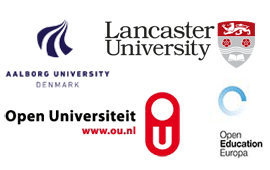

Discursive psychology as a methodology to explore how multiculturalism affects use of learning technologies
Claire Raistrick,University of Warwick
Networked learning remains a new field and many methodological, theoretical and other perspectives are used to learn more about it. Moreover, there is encouragement for the field's interdisciplinary researchers to take alternative methodological approaches. This paper provides valuable insights into a methodological approach which is little used in networked learning research. It reports an exploratory study to establish the value of a discursive psychology lens to understand uses of technology by international learners, and specifically how the language students’ use conveys their practices. The study was prompted when I questioned how multiculturalism might affect an institution’s virtual presence and whether students from alternative cultures had varying online learning needs. Discursive psychology was selected as the methodological approach as it has the potential to show how the social world is enacted in a more insightful and sophisticated way than happens when qualitative data are accepted at face value. The study involved secondary analysis of an ESRC-funded dataset and this paper illustrates analysis of talk by four undergraduate learners from Africa and Asia. The paper shows how participants constructed their identities and gave meaning to their talk. It also exemplifies the dynamics of talk and the work undertaken via the expression of thoughts, and how these supplement the descriptive meaning of words. Aspects of what is emotional about participants' talk are highlighted, including their sense of struggle. A gap is found between students’ uses of technology for learning purposes and what would be required in a networked learning environment. There is also evidence of threshold moments within learners' positioning. It is clear that educational experiences could be enhanced by educators recognising that students' needs vary, evolving over time. An argument to place the learner at the centre and to design from learners' perspectives to be better able to lead them forward from where they are regarding use of technologies to where learning can take place is made. Given this paper's focus on talk from international students it is particularly relevant that those in global online learning contexts appreciate the extent of meaning suggested by this paper's findings. A lack of such awareness carries with it a risk of not sufficiently appreciating what learners are thinking and this gap will leave educators ill-prepared to provide optimal learner-centric support structures.
Keywords
Discursive psychology, networked learning, threshold moments, positioning, multiculturalism
Joint Organising Institutions
| Conference Travel and Accommodation |Doctoral Consortium | Past Conference Proceedings | Contact |